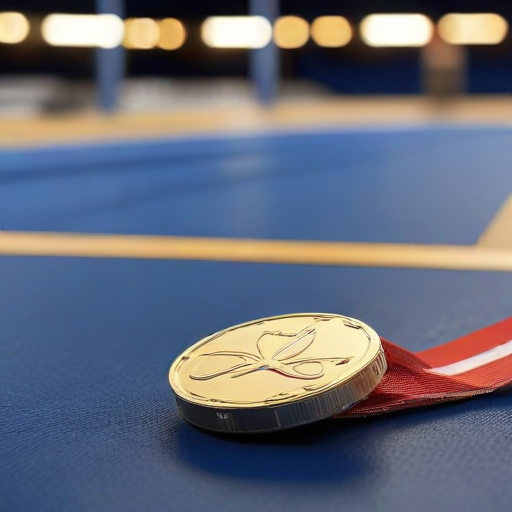Bela Karolyi, the influential gymnastics coach who played a crucial role in elevating the United States to prominence in the sport, has passed away at the age of 82. USA Gymnastics confirmed that he died on Friday, though the cause of death has not been disclosed.
Karolyi, alongside his wife, Martha, coached numerous Olympic gold medalists and world champions, including notable figures like Nadia Comaneci and Mary Lou Retton. Comaneci reflected on Karolyi’s significant impact on her life, stating that he was a central figure during her historic win at the 1976 Montreal Olympics, where she achieved the first perfect 10 in Olympic history.
However, his coaching methods often attracted controversy, particularly during the fallout from the Larry Nassar sexual abuse scandal. Many former gymnasts alleged that the Karolyi training environment contributed to a culture that allowed Nassar’s abusive behavior to persist without accountability. Though the Karolyis denied any knowledge of Nassar’s actions, the scandal significantly affected their presence in the gymnastics community and led to the discontinuation of USA Gymnastics’ training at the Karolyi Ranch, especially after Simone Biles expressed concerns about the site.
Born in Cluj, Hungary (now Romania), Karolyi’s beginnings in gymnastics were humble. His journey into coaching started when he sought to engage students in gymnastics during harsh winters, eventually leading to his coaching of the Romanian national team. His legacy includes leading Romania to unprecedented success in gymnastics at the 1976 Olympics.
Despite facing criticism for his demanding and sometimes harsh coaching style, Karolyi’s approach undeniably transformed American gymnastics. Under his and Martha’s leadership, American women have dominated Olympic competitions, with the U.S. team winning gold in women’s gymnastics at both the 2012 and 2016 Olympics.
As the gymnastics community reflects on Karolyi’s complex legacy, many of his former gymnasts maintain their support for him, acknowledging the high standards he set. This duality of admiration and critique encapsulates a coach who not only produced champions but also contributed to a conversation about the evolution of athlete welfare in sports.
Karolyi’s life and coaching journey underscore the intricate balance between the pursuit of excellence and the importance of a supportive environment for athletes. His influence will continue to be felt in the sport as a polarizing figure who helped shape modern gymnastics while prompting discussions about necessary reforms.
In summary, Bela Karolyi’s death marks the end of an era in gymnastics, encapsulating both the heights of athletic achievement and the ongoing challenges within the sport. His contributions can inspire future coaches to focus on fostering a positive, empowering environment for athletes while still striving for excellence.
